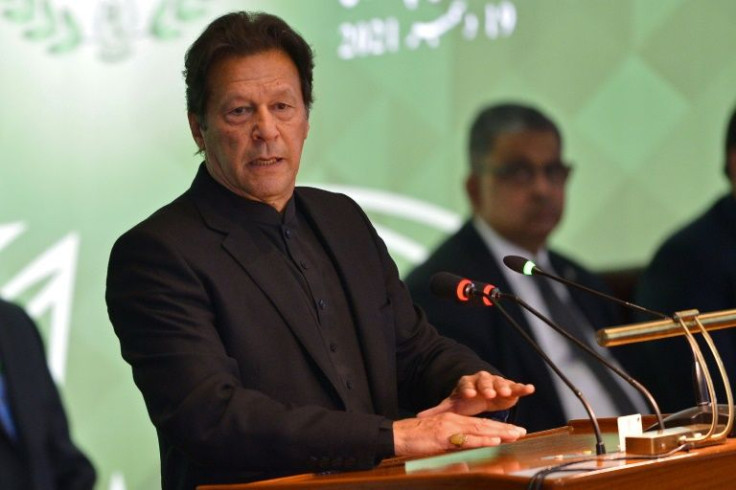Troubled Imran Seeks Backing of Hesitant Generals To Face Trust Vote

Though there is no precedence in Pakistan's political history of removing an elected government through a vote of no-confidence, this time confidence is running high among the opposition as it is reported to be armed with tacit support from the powerful army.
The shifting of sands in Pakistan politics seems to have taken an ominous turn which has made Prime Minister Imran Khan worried about the top job in the country with the perception that the military generals are distancing themselves from his government
After the nine-party opposition alliance turned the heat on Imran Khan with a no-confidence motion against his Pakistan Tehreek-e-Insaf (PTI) government, the Prime Minister has resorted to the typical ploy of populist politics by playing the nationalist card in times of crises by blaming external forces to reinforce the theory of a foreign conspiracy against his government.
To torment Khan further, the opposition has planned a march in the capital Islamabad before the no-confidence vote against Pakistan Tehreek-e-Insaf (PTI) government is taken up by this month-end.
The opposition has urged the Pakistan army, which is known for its active involvement in national politics, to remain neutral. A few local media reports said that generals may prefer the opposition over the 69-year old former cricketer.
A worried Khan, dispatched March 11 a heavy contingent of police to raid the Parliament Lodges and zero in members of the Ansarul Islam, which was banned by the interior ministry in 2019 as it is 'capable of functioning as a military organization'.
At least four legislators were arrested along with two dozen from Ansarul Islam group, a volunteer force of the Jamiat Ulema-i-Islam-Fazl (JUI-F) during the operation, conducted under the command of DIG (operations).
Protesting against the police action on Parliament Lodges, located opposite Parliament House, a few legislators also courted arrest.
Reacting to the panic action by the prime minister, Bilawal Bhutto-Zardari, Pakistan People's Party (PPP) chairman, said the police action in Parliament Lodges is "proof of Imran Khan's nervousness."
Though the move is a well-calculated gamble and the no-confidence motion is moved after blaming Khan's government for uncontrolled inflation in the country, the odds are not heavily against the Pakistan Tehreek-e-Insaf ruling coalition, which looks good on paper.
However, growing ranks of dissidents, estranged coalition partners, and widening cracks within the ruling party have further worsened the woes of the 69-year-old prime minister as they can mark the end game of Khan who is more than halfway through his term.
In fact, the schism in the party is too serious to be resolved by sweet words in the resourceful Punjab province. Bowing to pressure from his party, Khan was forced to dump Usman Buzdar, his hand-picked Punjab province chief minister, to defuse the rebellion recently.
Still, no consensus has emerged on who will step into Buzdar's shoes. To win over, Khan may be forced to hand over the most powerful post in the key province to a coalition partner, also given his thin majority in the provincial assembly. The PML-Q, an important ally of the Pakistan Tehreek-i-Insaf government, has already staked the claim with its own candidate, Chaudhry Parvez Elahi, and is pressing Khan to settle for him before taking up the no-trust motion in the National Assembly.
As political wheeling and dealing are on, the opposition hopes that many PTI National Assembly members from Punjab province will jump ship.
Earlier, no-confidence motions were tabled against the Shaukat Aziz government in 2006 and the Benazir Bhutto administration in 1989. However, both survived.
In the house of 342, the opposition needed the backing of 172 members to remove the prime minister. The opposition has claimed the support of 28 lawmakers of the ruling party and others from the ruling coalition.
On paper, PTI has 155 members and enjoys support from 23 members from coalition partners. Khan is heading the coalition 2018 and he can be removed if partners switch sides, which is not unusual.
The National Assembly is expected to meet March 22 and the voting on the no-confidence motion will take place between March 26 and March 30, local media said.
Khan's future now depends on the neutrality of the army, which is rare in Pakistan. Less surprisingly, both the factions are claiming support from the army generals.
Wait for the generals' choice.
























